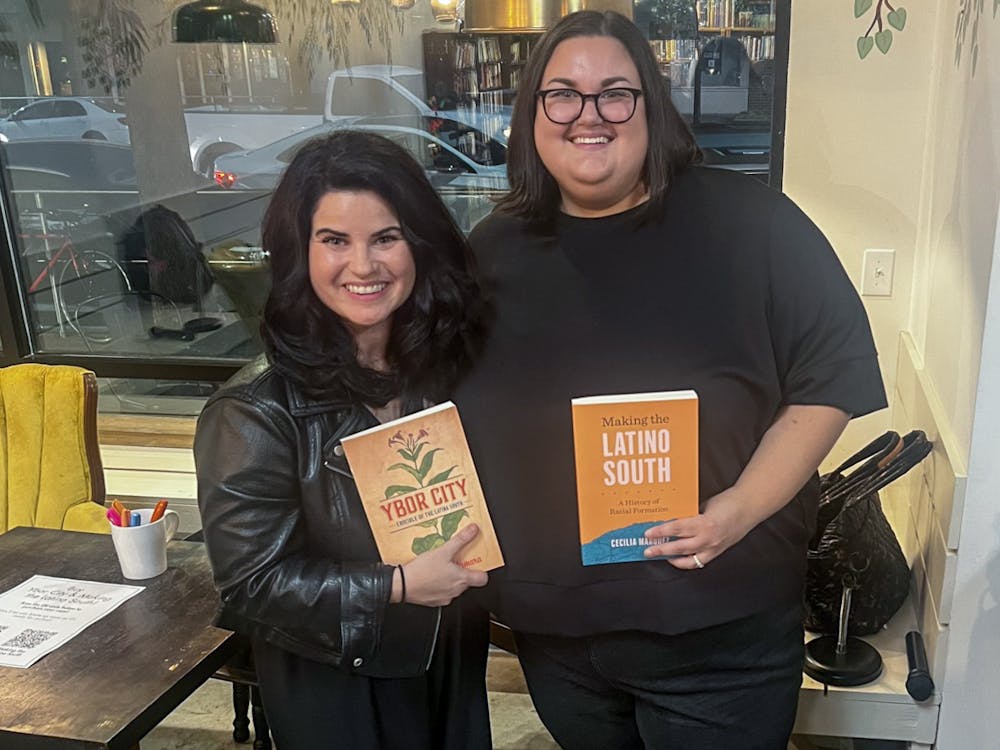An intimate group gathered at Prologue Rare & Used Books last Wednesday evening — greeting each other familiarly, laughing and sipping wine.
The occasion was a conversation between friends and scholars Sarah McNamara and Cecilia Márquez, celebrating the launch of their debut books, both about the history and development of Latinidad in the U.S. South.
McNamara, an assistant professor of history at Texas A&M University, is the author of "Ybor City: Crucible of the Latina South," which was published earlier this year. Márquez is an assistant professor of history at Duke University. Her book "Making the Latino South: A History of Racial Formation" was published in September.
The U.S. South through the Latino lens is a severely understudied topic, which is why the two authors’ work is exciting, McNamara said.
Both books explore how place and time shape what it means to be Latino and emphasize that Latinidad is a broad and encompassing category.
McNamara’s book is the story of three generations of Latinas who came to Ybor City, a neighborhood in Tampa, Fla., and the historic capital of Cuban cigar manufacturing.
“The way that I describe it in my quick pitch to people typically is that my book is seeking to tell us how people, places and politics become who and what they are,” she said.
McNamara’s own maternal family comes from Ybor City. They were involved in radical politics and protests, including a 1937 anti-fascist march when Latinas led thousands of protestors from Ybor City to Tampa's city hall.
Although Florida is a historic "destination state" for Latino migrants and immigrants, the research on what the identity means within the state is limited, McNamara said — especially for Latinas, whose perspectives are not always prioritized by historical archivists.




